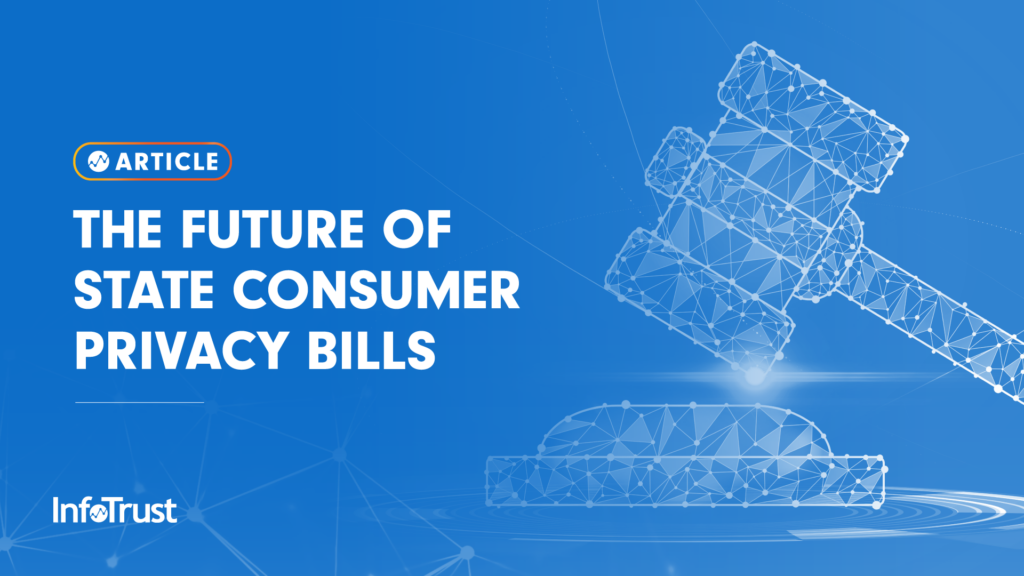In an age where technology and data are ubiquitous, it is more important than ever to protect the information of individuals. Personal data can be used to exploit individuals, and both government and industry are taking steps to mitigate the damage and protect customers.
For their part, technology companies are increasingly taking steps to protect consumer privacy. Apple and Android, for example, have both implemented features that allow users to control their data. These companies have also made it easier for users to delete their accounts and data. In addition, both Apple and Android have pushed for privacy-friendly features to be included in web browsers. Mozilla, the maker of the Firefox browser, has also taken steps to make its browser more private. The company has introduced a number of privacy-focused features. These features include blocking third-party cookies and allowing users to control their data.
State Consumer Privacy Legislation
State legislators are doing their part as well. States from California to Virginia have introduced and enacted consumer privacy laws. California’s Consumer Privacy Act, for example, requires businesses to disclose what personal information they collect and why they collect it. The law also gives consumers the right to know what personal information is being sold or shared. They are given the right to delete their personal information and the right to opt out of the sale of their personal information. Virginia’s Consumer Data Protection Act, meanwhile, requires businesses to provide customers with a notice of their right to opt out of the sale of their personal information. The law also gives customers the right to know what personal information is being collected, used, or sold.
It is clear that state legislators are taking consumer privacy seriously. And it is likely that more states will introduce similar laws in the future. In this post, we will examine some of the key aspects of these state consumer privacy bills and the potential impact they may have. We will also explore the underlying themes expected of future consumer privacy legislation.
Aspects of State Consumer Privacy Laws
A key aspect of state consumer privacy laws is that they give consumers the right to know what personal information is being collected, used, or sold. This right allows customers to make informed decisions about their data and understand how it is being used. In addition, state consumer privacy laws often give consumers the right to opt out of the sale of their personal information. This right allows customers to control how their data is used and shared. Finally, state consumer privacy laws require businesses to provide customers with a notice of their rights. This notice ensures that customers are aware of their rights and can exercise them if they choose to do so.
Current In-Committee Consumer Privacy Laws
As of this post, there are five states with consumer privacy laws in committee. If (or when) these bills become law, they will double the number of state-level consumer privacy protections in place in the United States.
Massachusetts
The Massachusetts Information Privacy and Security Act was introduced in the state legislature on February 14, 2022. The Act is a comprehensive privacy bill that would protect the personal data of Massachusetts residents.
Michigan
The Michigan Consumer Privacy Act is a proposed state law that would protect the personal data of Michigan residents. The Act was introduced on April 12, 2022.
New Jersey
The New Jersey Disclosure and Accountability Transparency Act was introduced in the state legislature on January 11, 2022.
Ohio
The Ohio Personal Privacy Act was introduced in the state legislature on July 23rd, 2021.
Pennsylvania
The Pennsylvania Consumer Data Privacy Act and Consumer Data Protection Act are two proposed state laws that would protect the personal data of Pennsylvania residents. These bills were introduced on April 7, 2021.
Each of these proposed consumer protection laws would require businesses to disclose what personal information they collect and why they collect it. These Acts would also give consumers the right to know what personal information is being sold or shared, the right to delete their personal information, and the right to opt out of the sale of their personal information.
Themes and Principles of Future Consumer Privacy Legislation
Based on the existing state and proposed state consumer privacy laws, we can identify a number of themes and principles that are likely to be included in future legislation. First, future consumer privacy legislation is likely to give consumers the right to know what personal information is being collected, used, or sold. This right is important because it allows customers to make informed decisions about their data. Second, future consumer privacy legislation is likely to give consumers the right to opt out of the sale of their personal information. This right is important because it allows customers to control how their data is used and shared. Finally, future consumer privacy legislation is likely to require businesses to provide customers with a notice of their rights. This notice is important because it ensures that customers are aware of their rights and can exercise them if they choose to do so.
The Impact of Future Bills on Consumers
The passage of state consumer privacy bills would have a significant impact on consumers. Perhaps most importantly, it would give them greater control over their personal data. For example, if a state passed a law requiring businesses to allow consumers to opt out of having their personal information sold, it would give consumers the power to stop companies from profiting off of their data.
Additionally, state consumer privacy bills could also lead to increased transparency around how businesses use and collect personal data. By requiring businesses to disclose what personal information they collect and how they use it, state consumer privacy bills would help educate consumers about how their data is being used and give them the ability to make more informed choices about which businesses they support.
Conclusion
New state consumer privacy laws will continue to be passed across the country. These laws will protect the personal information of customers and give them control over their data. Additionally, state consumer privacy laws will help to ensure that businesses are transparent about their data use practices.
By understanding the requirements of state consumer privacy laws, businesses can ensure they are in compliance and avoid any potential penalties. Additionally, by being proactive about their data collection and use practices, businesses can improve customer trust and loyalty, and increase sales.
**Important – The information covered in this article is not intended to be legal advice or counsel. You should not act or refrain from acting on the basis of any content included in this article regarding legal compliance without obtaining appropriate legal guidance. The contents of this article contain general information related to various laws and regulations, but may not reflect your current situation. In addition, applicable laws and regulations regularly change. This is particularly true with respect to data privacy laws and regulations. Therefore, any laws and regulations described or otherwise referenced in this article may not be current when you read the article or even at the time of publication. We disclaim all liability for actions you take or fail to take based on anything in this article. Any action you take or any action you refrain from taking based on the information in this article is entirely at your own discretion and risk.**


